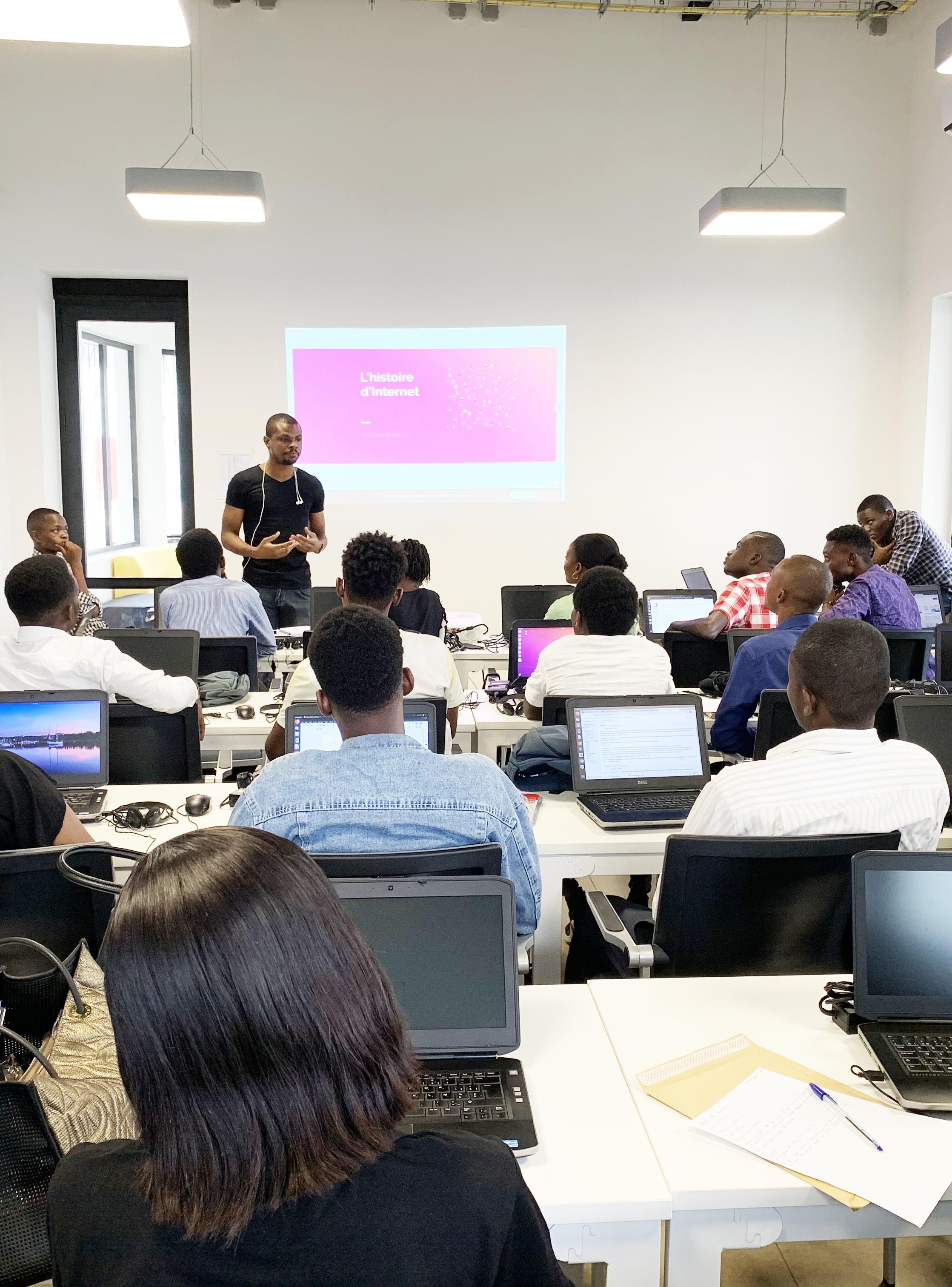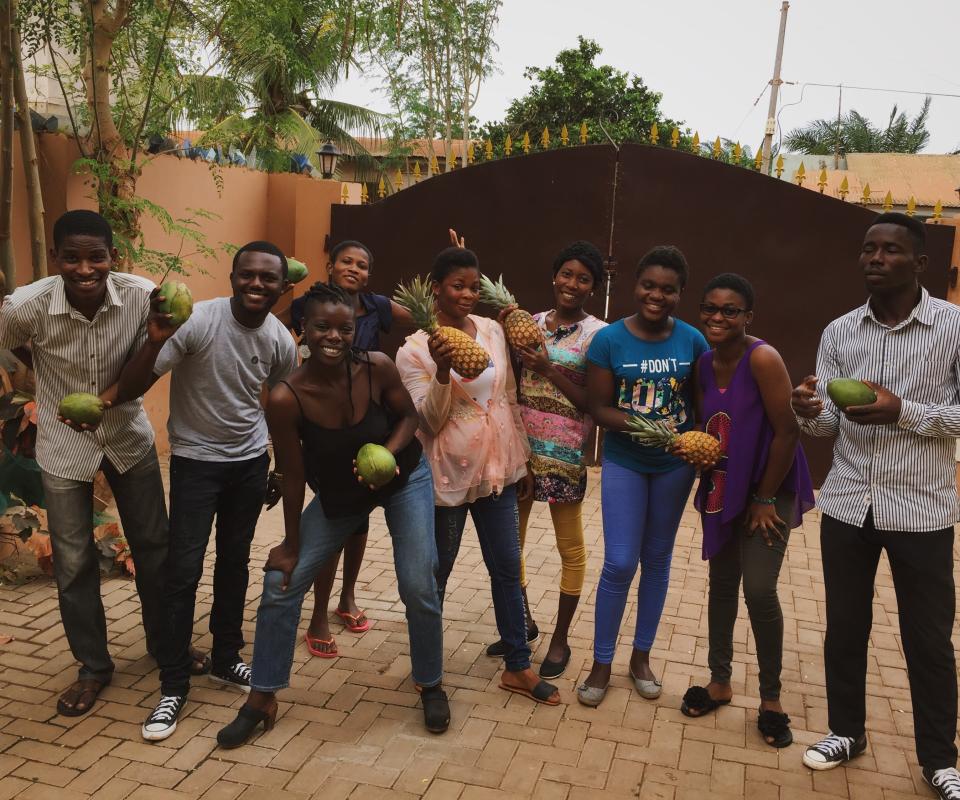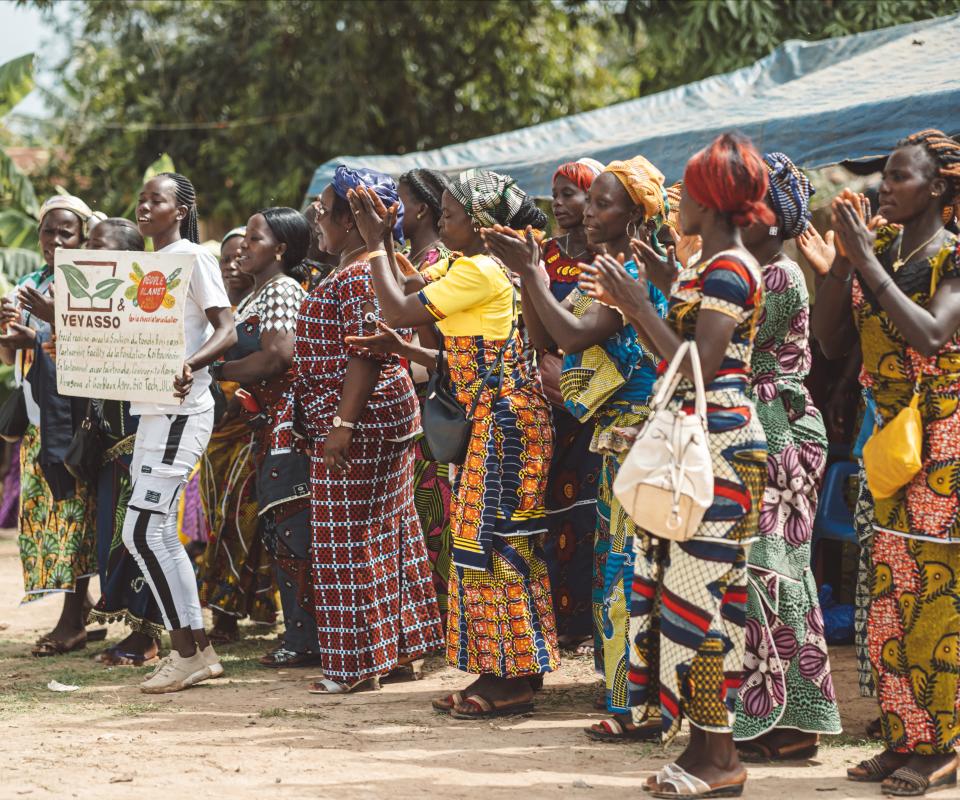
Digital, to fight inequality and COVID-19 in the DR Congo
"We want to help with the development of digitalisation in the DRC and the training of experts that the country needs."
Fewer than one in five Congolese have access to the Internet, barely more than 19% of the population. It is an abysmal digital divide that Jean-Louis Mbaka and his colleagues at Kinshasa Digital intend to reduce considerably. His company has also organised a programme of digital training for young people. Its principle achievement to date has been the official information website to cope with the COVID-19 crisis, with support from the King Baudouin Foundation and in cooperation with the Congolese Ministry of Health.
In Kinshasa, capital of the RD Congo, the first signs of the technological revolution can be noticed. Among the leaders of this are Nicolas Zanghi, Thomas Strouvens and Jean-Louis Mbaka. Jean-Louis, who graduated from the University of Bath in England, did not hesitate to return to his country of birth to contribute to its development. “I studied in Europe with the aim of using my knowledge in the service of my country. It’s an exciting challenge. The DRC needs us, the members of the diaspora who have had the opportunity to study abroad. My own country and Africa must not be excluded from history: they have to climb on board the train of this new industrial revolution” he says.
Obstacles and opportunities
The obstacles are colossal, including the weakness of broadband and illiteracy. “The big problem in the DRC is that of training”, says Jean-Louis Mbaka. "There is a flagrant lack of knowledge and information about digital. Most businesses are not interested, despite the fact that these information and communication technologies provide important job reservoirs and are major levers of development for companies by providing them with better visibility and a much bigger market.” In a country where unemployment (at 80%) and informal jobs are legion, digital therefore represents an important window of opportunities. And it is a window that Belgian Thomas Strouvens, who graduated from ICHEC, and Jean-Louis Mbaka were eager to open by creating, three years ago, Kinshasa Digital. The agency, which offers strategic and technological consulting, promotes everything digital, connects start-ups with the country’s large business groups in collaboration with the Publicis Group, and organizes technology fairs in half a dozen African cities.
A thirst for learning among young Kinshasans
The three entrepreneurs did not stop there, however. At the start of 2020, they launched the Kinshasa Digital Academy, managed by Jean-Louis Mbaka, on the Texaf Digital Campus. This training institute aims to boost the level of future actors in the digital economy through intensive training in web development and e-digital, based on practical teaching during their apprenticeship and leading to a certificate. And this is all free of charge. Each student receives a study grant, awarded by Congolese companies impatient to recruit these future digital experts. And for anyone who might question the desire of young Kinshasans to get involved, Jean-Louis Mbaka answers “Over 1,000 candidates applied for the first training session. After a really draconian selection procedure, we selected forty, 40% of whom are young women. We will increase this to eighty students for our next session.”
Digital in the fight against COVID-19
The King Baudouin Foundation has awarded support of 60,000 euros to Kinshasa Digital with a view to providing technical assistance to the Ministry of Health in the DRC in its communications regarding COVID-19. The coronavirus has not prevented the future graduates from working, despite the closure of their classrooms in mid-March. They each received a 4G key, which enabled them, in cooperation with the Minister of Health, to develop communication campaigns, create an Internet site and the government’s official web page on health measures to respect, as well as developing a chatbox designed to debunk fake news. And all that is working: the website has welcomed 180,000 visitors since the beginning of the epidemic in March and the official Facebook has reached over 3 million people. As far as confinement is concerned, it is at its maximum in Gombe, the business neighbourhood of Kinshasa, and within a radius of four kilometres, everyone is wearing masks. “But beyond that, it’s anarchy", admits Jean-Louis Mbaka, "Crowds throng the markets and mill around the street vendors.” Like elsewhere in the world, fingers are crossed in the hope of being able to control the virus soon.
But Nicolas Zanghi prefers turning the conversation to digital again: "Like the world of business, institutions urgently need digitalisation. In the DRC it’s a key challenge. The government wants to train young people so that the various ministries and the civil service can recruit people and launch pilot digitalisation projects. We are in close contact with the public health administration, particularly since the crisis, and we have realised how much we need to get on with implementing indispensable medical apps.” And above all, not miss the technological revolution train.
Other stories
Inspiring engagement!

Pure & Just: Sustainable growth, meaningful partnerships and economic empowerment
Business for development

Four founders explain how the Business Partnership Facility supports their sustainable businesses in Rwanda and Senegal
Business for development
“The relationship between funder and grantee is important,. Social entrepreneurs are passionate about what they do. Trust is critical in the sense of empowering implementers. I experienced that trust and that was empowering, the feeling that I have control to take decisions that I see are right for us.”

Yeyasso, the Ivorian cooperative where all hopes are allowed
International
“Yeyasso differentiates itself through its added value. We aim to become organic, equitable, carbon neutral, with no child labour and with zero deforestation.”